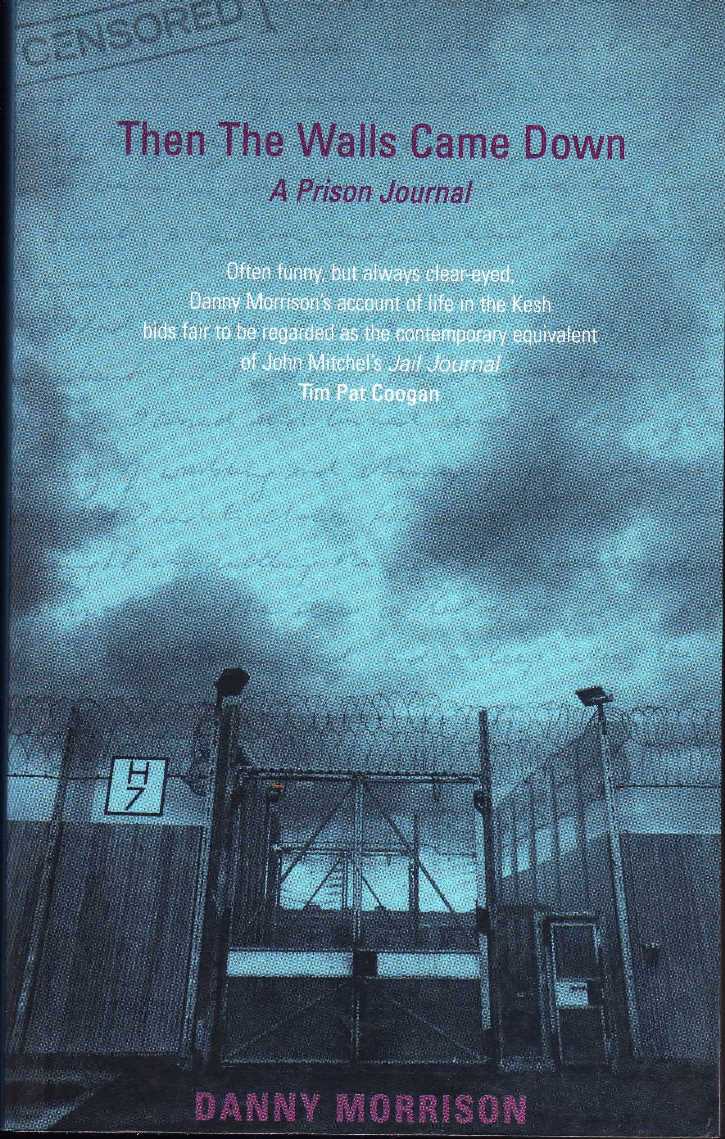
Then The Walls Came Down (reissued 2024; first published 1997)
While I was on remand and after I was sentenced I wrote daily to my partner. This is a collection of those letters, some censored, some smuggled, and some to other friends and comrades which cover the beginning of the peace process and in which I also discuss books and music.
Reviewers wrote:
‘one of the most important books to emerge from the conflict in Northern Ireland . . . a vividly humane account of life in prison.’ – Irish Times, 21 October, 1999
‘remarkable as a human document . . . The flashes of humour and compassion bear comparison with those in Brendan Behan’s Borstal Boy. A must-read for anyone interested in the North.’ – 13 November, Irish Times
‘All in all, if this book is more than a Jail Journal, it might be a symphony. For like music it is poignant and liberating; written out of the cloisters of imprisonment . . .’– Irish Examiner
‘The irony of post-ceasefire Northern Ireland is that the new thinking has come from those involved in the republican war. Danny Morrison’s prison memoirs is an honest study of a man seeking fresh solutions to the stalemate the Provos found themselves in at the beginning of the Nineties. – The Observer
‘Morrison’s book, while unapologetically hard-line, is shot through with subtlety and feeling.’ – Sunday Business Post
‘Like the best of novels . . . all human life is there, the world of the imagination and the realities of the unfolding political scene on the outside . . . invaluable as a rare look at prisoners as human beings.’ – Irish News
‘No bitterness, bigotry or bile . . . a far, far better read than John Mitchel.’ – Irish Independent
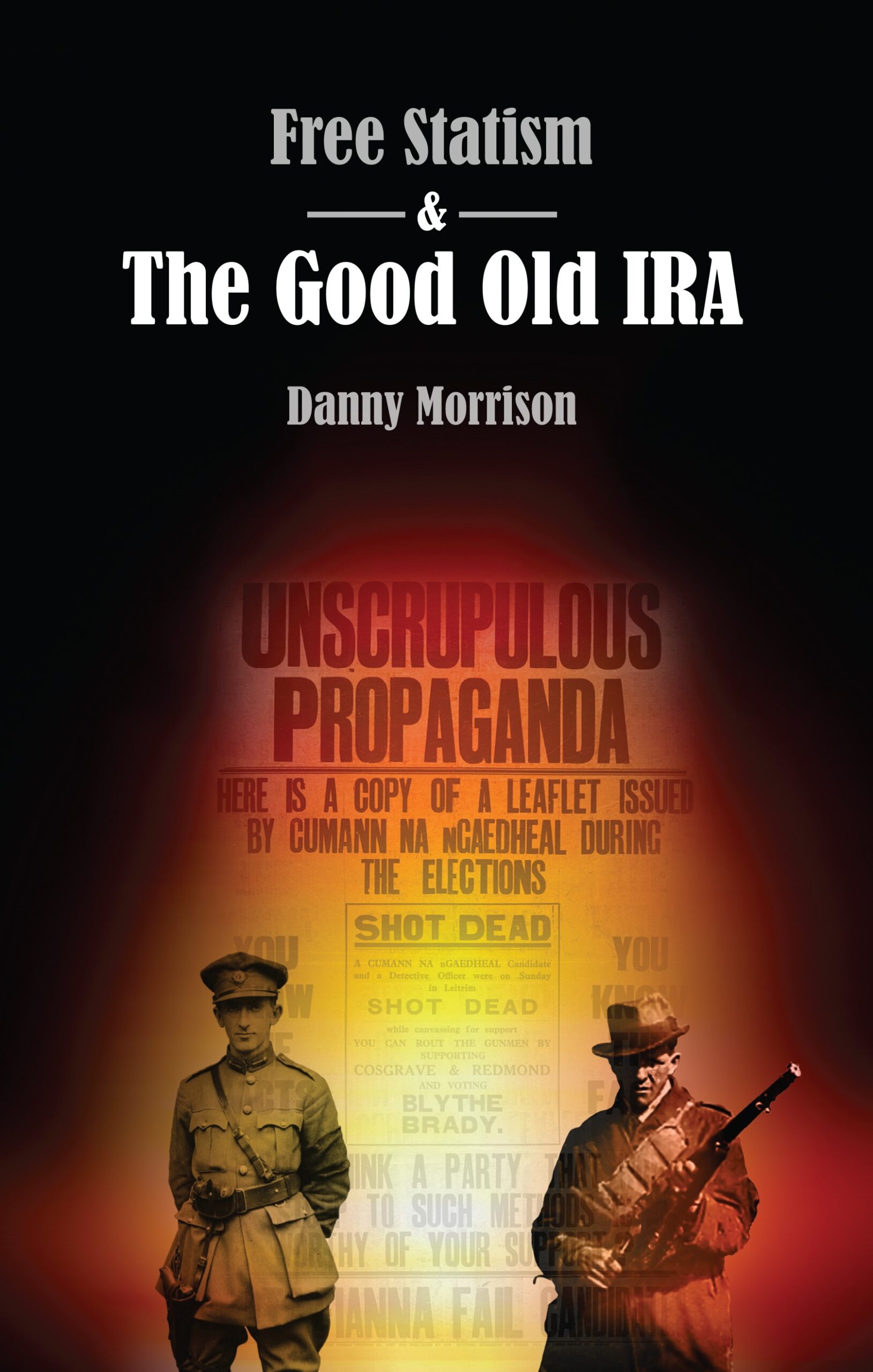
Free Statism and The Good Old IRA (published 2022)
From its inception and through its many incarnations from Free State to Éire to the Republic of Ireland the establishment and mainstream media in the South have promoted a partitionist mind-set – Free Statism. They abandoned the nationalist community in the North to its fate as victims of sectarian rule and British repression. Their demonization of republicans has only intensified with the electoral rise of Sinn Féin.
They condemned the republican struggle while simultaneously commemorating the IRA campaign during the Tan War as the legitimate, justifiable deeds of a nation fighting to end British rule in Ireland. Except, of course, the fighting didn’t end British rule in Ireland but bequeathed a conflict to another generation.
The Good Old IRA examines the nature of the Tan War, bomb and gun attacks, the killings of RIC men, on- and off-duty, the execution of informers, the IRA campaign in England, and other multiple-parallels between two struggles separated only by time.
Reviewer in Phoenix magazine wrote:
‘sometimes chilling’, this is a book with a ‘laser-like focus: “Free Statism” and its hypocrisy, double standard and betrayal of Irish citizens in the north. Those “Free Staters” who actually read it will find some accusatory passages and what is clearly a genuine sense of grievance…’
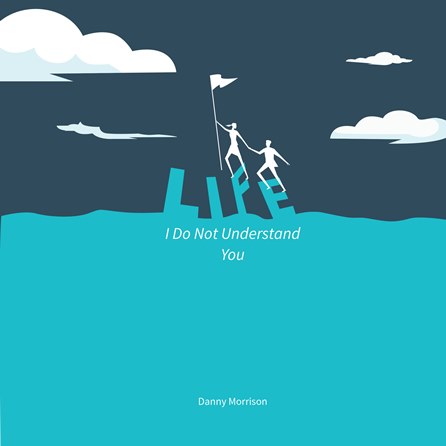
Life, I Do Not Understand You (published 2019)
For over twelve years myself and graphic designer Seán Mistéil designed Féile an Phobail’s highly-regarded published programmes. Seán also designed the stylised covers of my re-issued novels, West Belfast and The Wrong Man.
For forty years I’ve been collecting quotes on a variety of themes from books and poems which appealed to me or suggested a little insight into the meaning of life. This collaborative book contains around several hundred selections by myself and Sean’s artistic response. Some little gems on how to live life and survive life.
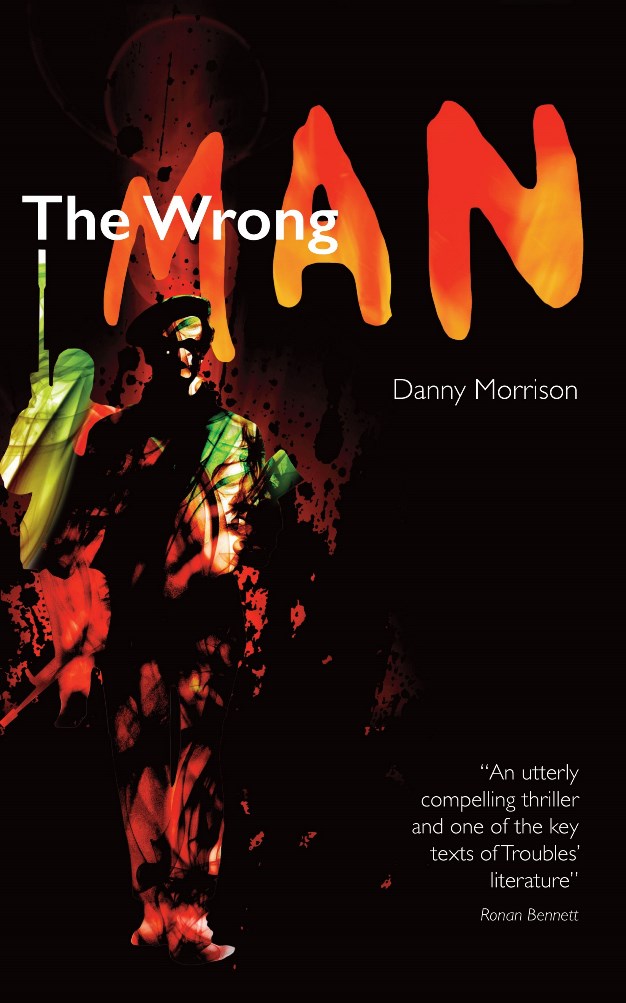
The Wrong Man (reissued 2018; first published 1997)
Hunger strikers are dying and passions are high. Belfast, 1981. Young Thomas ‘Tod’ Malone is in awe of leading IRA fighter and recently-released political prisoner, Raymond Massey. Tod joins the IRA which is in a deadly war with British undercover soldiers and the RUC Special Branch as each side tries to outwit the other.
The two IRA men’s families – their partners Roisin and Sal – also bear the brunt of suffering: the military raids and arrests, the humiliations and abuse, and the social deprivation that comes with sacrifice.
When IRA operations go wrong the organisation becomes convinced that there is a traitor in its ranks working for the enemy. But who? And why? And how?
This is a riveting political thriller about war, morality, love and deceit.
Reviewers wrote:
‘a powerful evocation of betrayal, deceit and guilt’ – Oxford Companion to Irish Literature
‘a novel that should come to be regarded as one of the most important books of the Troubles’ – The Belfast Telegraph
‘a powerful and complex piece of storytelling’ – Sunday Times
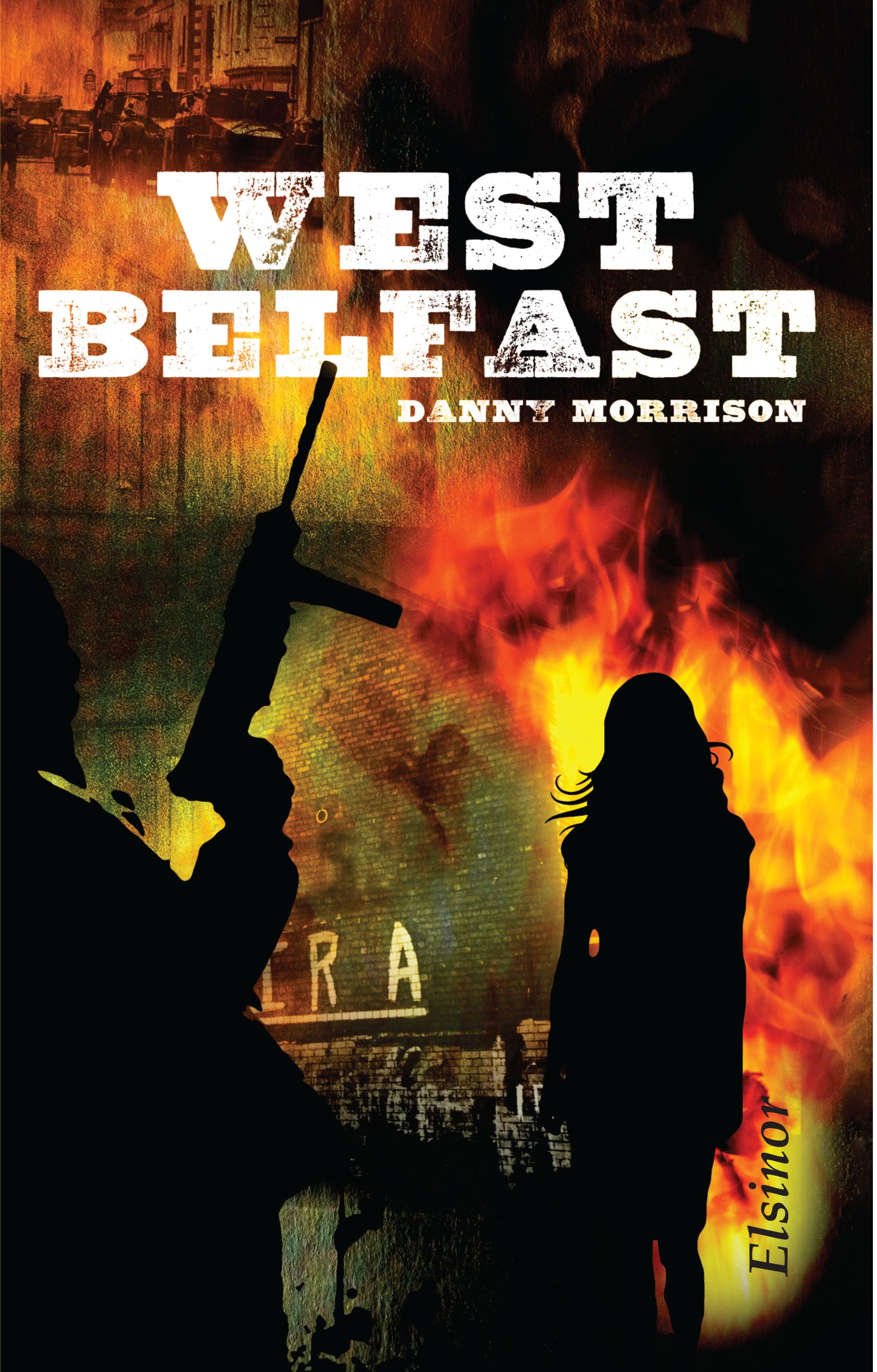
West Belfast (reissued 2018; first published 1988)
West Belfast is the story of the nationalist community and how political events between 1963 and 1973 impacted on its people and how a section of nationalists, especially its young, came to support the IRA after the failure of the Civil Rights Movement.
It is about the loss of innocence at both the individual and communal level and covers the 1964 Divis Street riots, the Civil Rights campaign, the Pogroms of 1969 when the British Army was deployed (once again) on Irish street, the Falls Curfew, Internment, and the year of 1972 when almost five hundred people lost their lives.
It is also a love story.
Former BBC journalist, Brian Rowan, in his review of the book said:
‘There are ghosts in Morrison’s novel and ghosts in the realness of what happened here. The long peace hasn’t exorcised the memories of the long wars. Morrison describes ghosts that broke health and minds. And, there is a line he uses as Angela breaks-up with John: “The truth would have wounded him even more.”
‘Think about that sentence and those words, not in terms of broken love, but broken bodies – the brokenness of conflict and the past. Will ugly-truths make things better or worse?’
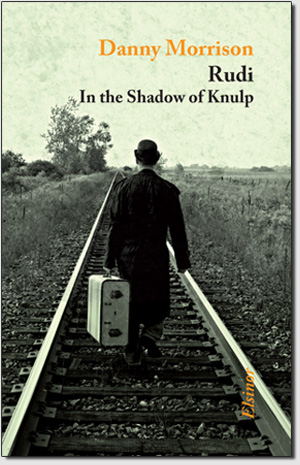
Rudi – In The Shadow of Knulp (first published 2013)
Rudi—which also was published in Germany as Rudi—Im Schatten von Knulp—received little publicity, but is a book of which I am proud and very fond. Not available in too many bookshops but I still have copies.
The book came about in the following way. While in prison I would listen to the ‘Book at Bedtime’ on BBC radio and was enthralled at this very short story—the book only has three chapters. Since then I have read it probably twenty times. It was first published in 1915, though the story is set around 1905 (I think) is about a promising scholar, Knulp, who falls in love with a slightly older woman who breaks his heart. Unable to cope, he becomes a tramp and travels from village to village where friends look after him, though he occasionally has to sleep rough. I decided to use the plot and move the story to Ireland, beginning in the 1940s, with Rudi looking back on his life from the 1990s.
‘Fantastic read… a brilliant structured book… Morrison is gifted at vivid descriptions’ – Irish News
‘Morrison’s best novel to date. Funny, sad, very moving’ – William Crawley, BBC
‘Rudi stands in the tradition of those Beckettian figures with their desire to remember, to tell, and their inability to tell. When, in the end, Rudi does tell, it comes as a great surprise’ – Ruth Frehner, Zürich James Joyce Foundation
“A simple tale, enfolding a greater complexity and important moral issues relating to conflict and violence, beautifully told…’ – Former Irish Senator Maurice Hayes (European Person of the Year in 2003)
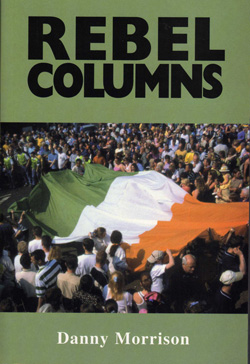
Rebel Columns
This collection of political features on the peace process and international affairs—published 2004—is currently out of print and unavailable.
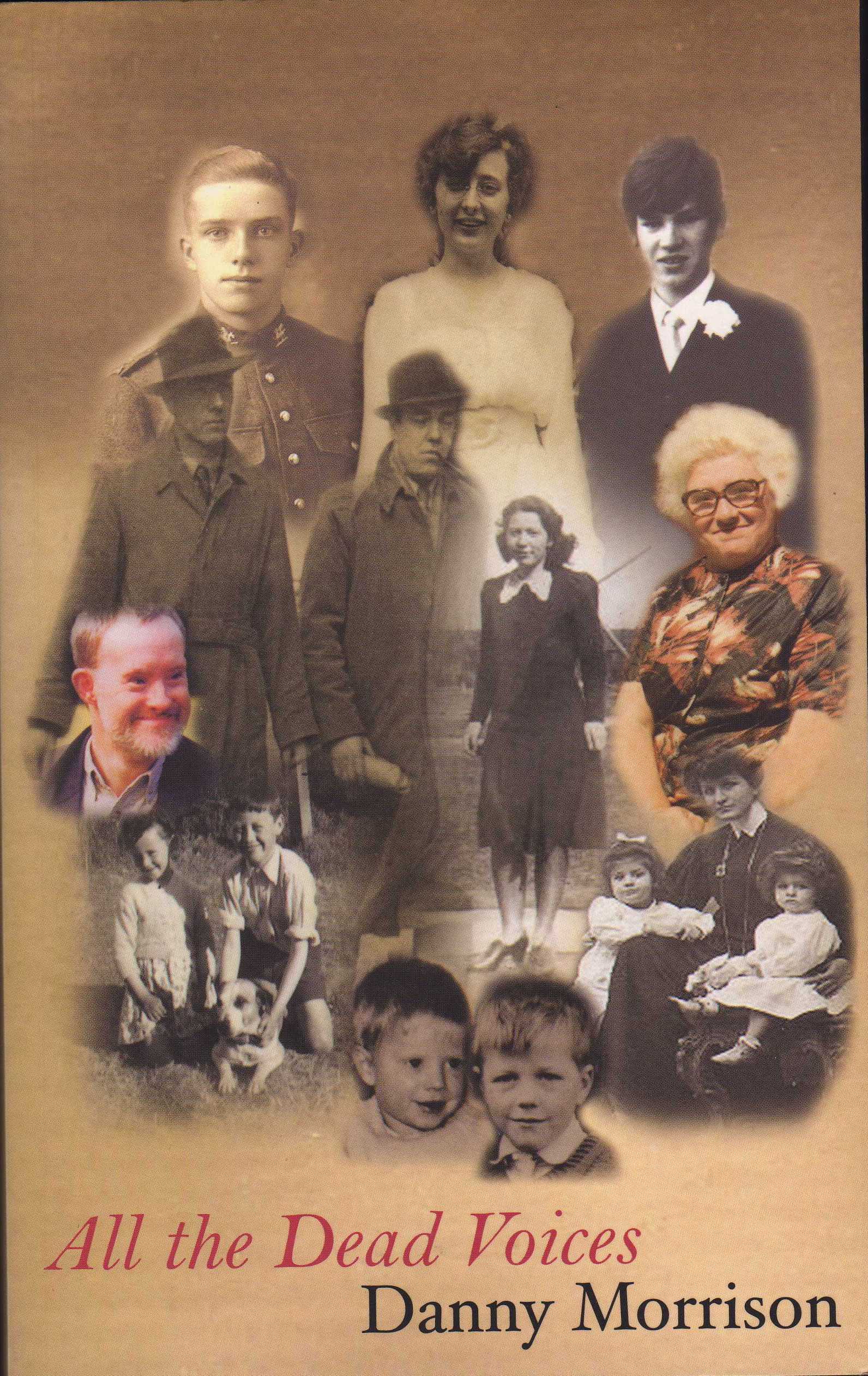
All The Dead Voices
This memoir—published in 2002—is currently out of print and unavailable.
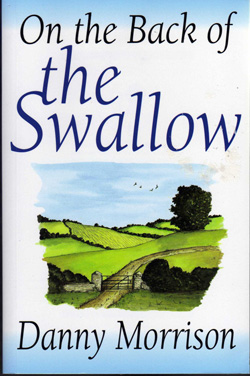
On The Back of the Swallow
I wrote this novel while in prison and it was launched during my first parole in August 1994. It is set in a city with the geography of Belfast in the early 1990s and there is a presumption that the Troubles ended back in the 1920s. So, there is no sectarianism, no IRA, British Army or RUC, but society is deeply conservative and intolerant of difference. It is about a gay love affair between Nicky Smith, a postman, and a schoolboy, Gareth Williams. It is currently out of print and unavailable, although I am thinking of republishing it.
Other Work
I have also been involved in editing and bringing to publication a large number of books: from the late Bobby Sands; essays on the 1981 hunger strike; books by former prisoners, including Jim ‘Jaz’ McCann and Eoghan ‘Gino’ Mac Cormaic; and from 2022 fiction and non-fiction titles through my publishing house, Greenisland Press.

